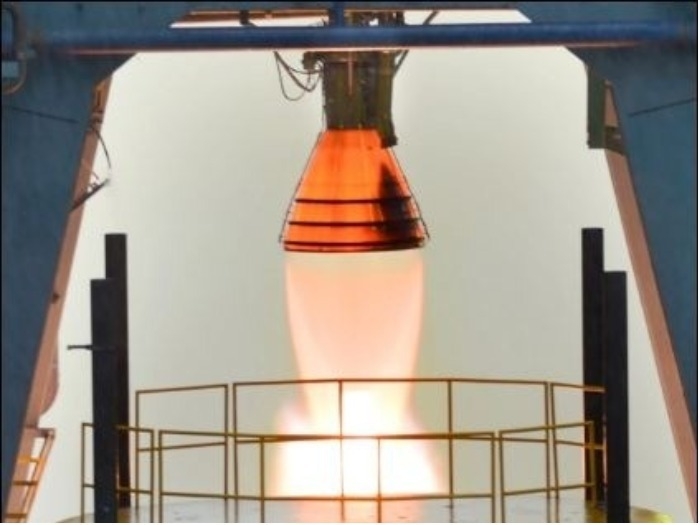With qualification of Vikas Engine, ISRO to improve payload capability of PSLV and GSLV series launch vehicles
Mahendragiri, July 16: The Indian Space Research Organisation (ISRO) on Sunday successfully qualified a high thrust version of the Vikas Engine through a ground test for the duration of 195 seconds at ISRO Propulsion Complex (IPRC), Mahendragiri, Tamilnadu.

Notably, a high thrust version of the Vikas Engine will improve the payload capability of PSLV, GSLV and GSLV Mk-III launch vehicles. This ground test has also validated the performance adequacy of the Vikas Engine for its use in the upcoming second developmental flight of GSLV Mk-III.
Vikas Engine is the workhorse liquid rocket engine powering the second stage of India’s Polar Satellite Launch Vehicle (PSLV), second stage and the four strap-on stages of Geosynchronous Launch Vehicle (GSLV) and the twin-engine core liquid stage (L110) of GSLV Mk-III.
During the tests, all the propulsion parameters were found satisfactory and closely matched the predictions. Taking to a twitter, ISRO informed, “Successful Qualification of High Thrust Vikas Engine.”
BACKGROUND:
The Indian Space Research Organisation is the space agency of the Government of India headquartered in the city of Bangalore which was formed in 1969. Its vision is to "harness space technology for national development while pursuing space science research and planetary exploration." ISRO built India's first satellite, Aryabhata, which was launched by the Soviet Union on 19 April 1975. It was named after the Mathematician Aryabhata. On 15 February 2017, ISRO launched 104 satellites in a single rocket (PSLV-C37) and created a world record.